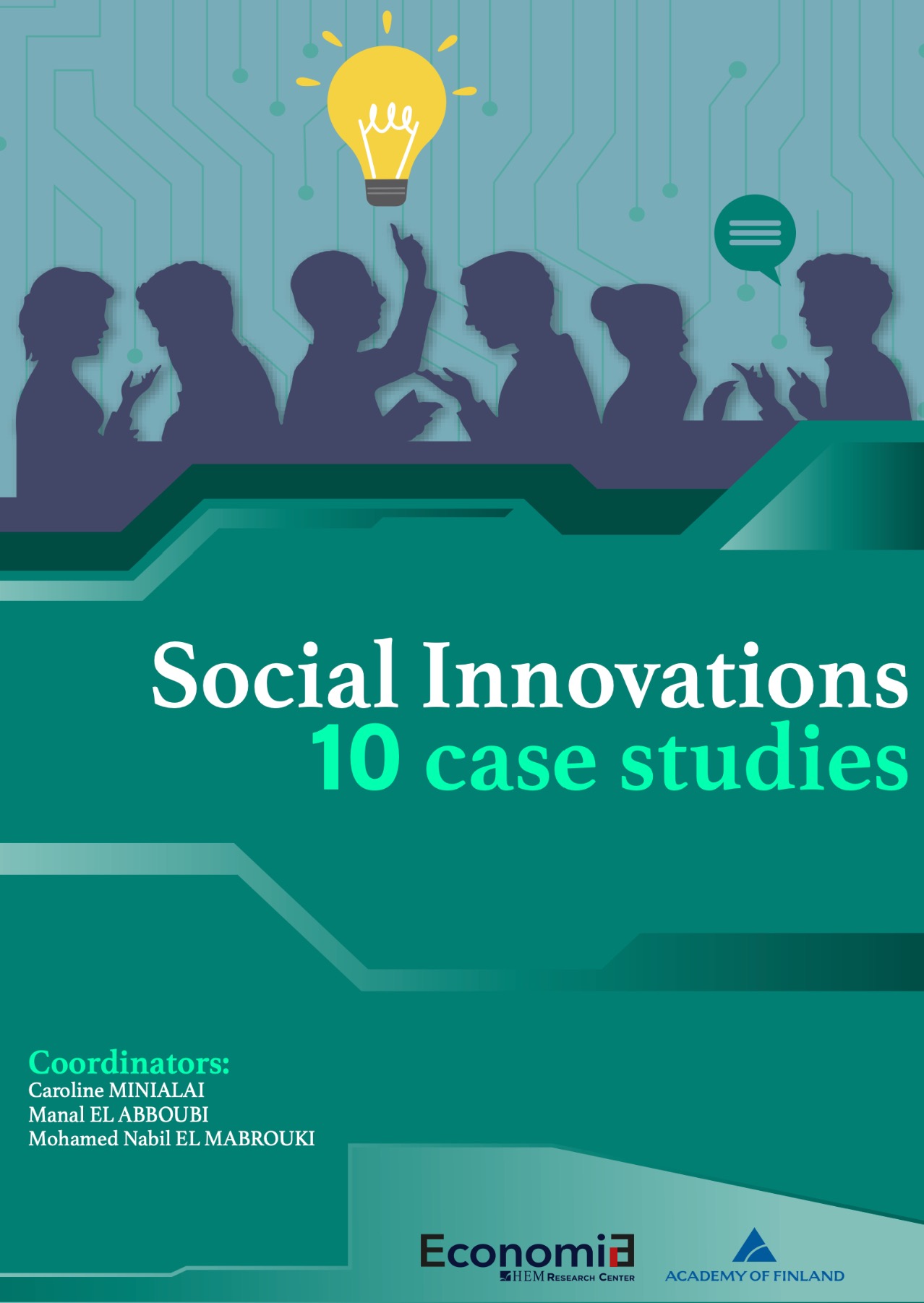
Social Innovations : 10 case studies
Social entrepreneurship has recently been discussed as a missing link between entrepreneurship, social change and sustainable development (Abdou et al., 2010; Rizk & Azzamy, 2016). It is hoped that social entrepreneurs create sustainable business models that promote positive social change and inclusive economic growth. Small and medium-sized businesses thrive in the informal and formal economies of the MENA region (Minialai, 2016). While Egypt has the largest proportion of internationally acknowledged social entrepreneurs, Morocco and Tunisia lag far behind (Ismail & Yehiya, 2016). However, the phenomenon of social entrepreneurs in the late 2010s remains understudied: How do support mechanisms, incubation practices and income generation work out for today’s young social entrepreneurs in practice? The SAHWA1 data indicate that entrepreneurship is among the main aspirations of young people but the risks involved, the lack of initial capital, the legal and economic hurdles are not conducive to such ventures.
Social Innovation is a step further, regarding social entrepreneurship, in the sense that it highlights the positive impacts supposed to be generated by the economic activity in the same way as the innovation process and/or idea behind it. It has been studied largely how social innovation, through entrepreneurship or intrapreneurship, can contribute to deal with the society’s big challenges and manage to bring brilliant solutions to economic problems, and what are the mechanisms that could be fostered and enabled through social innovation projects. (Bacq & Janssen, 2011; Barberá-Tomás et al., 2019; Battilana, Besharov, & Mitzinneck, 2017; Chrispal, Bapuji, & Zietsma, 2021; Dorado & Ventresca, 2013; Ferraro, Etzion, & Gehman, 2015; Lawrence, 2017; Mair, Battilana, & Cardenas, 2012;Montgomery & Dacin, 2019; Tracey & Stott, 2017; Vacquier, Hudson, & Roulet, 2021).
In this book, we are interested in documenting practical and real social innovations and learn from their experimentations. We are particularly interested in understanding what inspires social innovators, the challenges they face such as anger, fear, disappointment, impacts, project scalability and so on as well as the novel mechanisms of positive changes they foster through their projects. We register the book in the research field highlighting mainly the positive impacts of social innovation and change driven mechanisms embedded in their specific contexts. This includes the development of a balanced view between management practices, social impacts production, leadership profiles
and projects scalability.
From that perspective, this book aims at sharing youth inclusion through social innovations with educators, students and professionals (from both private entreprises and NGOs). This book will gather in different chapters management case studies that can be used both for teaching purposes and as a dissemination tool of innovative practices in the social and economic life.
This e-book is Coordinated by :
- Caroline MINIALAI, Research Affiliate, Economia, HEM Research Center
- Manal EL ABBOUBI, Professor, Mohamed V University, Research Affiliate, Economia, HEM Research Center
- Mohamed Nabil EL MABROUKI, Professor, Cady Ayyad University, Research Affiliate, Economia, HEM Research Center
Caroline Minialai
Enseignante chercheure à Economia, HEM Research Center depuis 2009, coordinatrice de la chaire Management International et Sociétés, Caroline Minialai est diplômée de l’EDHEC. Elle obtient en 2000 après 8 ans audit et direction financière, l’agrégation en économie et gesti...
Lire la suite ...Nabil EL MABROUKI
Professeur HDR à l’Ecole Nationale de Commerce et de Gestion, Université Cadi AYYAD de Marrakech et chercheur associé à HEM Research Center. Il enseigne la stratégie, le management et le contrôle de gestion. Ses travaux de recherche portent principalement sur les stratégies d'internation...
Lire la suite ...Manal EL ABBOUBI
Professeure à l’Université Mohamed V, Rabat. Elle est chercheure associée à HEM Research Center et à EGiD (Etudes sur le Genre et la Diversité en Gestion) à l’Université de Liège (Belgique). Elle détient un doctorat en sciences économiques et de gestion de HEC Ecole de Gestio...
Lire la suite ...





